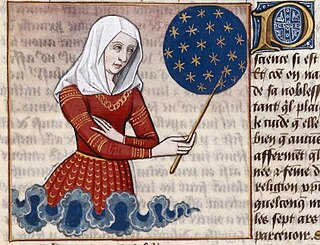Sources
- Les ancêtres de Charlemagne , 1989
- Continuité gentilice et continuité sénatoriale dans les familles sénatoriales romaines à l'époque impériale , 2000
Quintus Fabius Clodius Agrippianus Celsinus (c. 210 - after 249) was proconsul of Caria in 249. He was the son of Clodius Celsinus (born c. 185) and his wife Fabia Fuscinella (born c. 190), paternal grandson of Marcus Clodius Macrinus Hermogenianus (born c. 150), and great-grandson of Marcus Clodius Macrinius Vindex Hermogenianus (born c. 125), a proconsul of Africa c. 200. His wife was Laberia Pompeiana (born c. 225). His maternal grandparents were Quintus Fabius (born c. 165) and wife Fuscinella (born c. 165), daughter of Publius Seius Fuscianus (born c. 120), consul in 151, praefectus urbi from 187 to 189 and suffect consul in 188.
Clodius Agrippianus Celsinus was the father of
These Clodii Celsini continued to practice the traditional religions of antiquity and remained unconverted in the face of Christian hegemony through at least the 4th century until Clodius Celsinus Adelphius.

Clodius is an alternate form of the Roman nomen Claudius, a patrician gens that was traditionally regarded as Sabine in origin. The alternation of o and au is characteristic of the Sabine dialect. The feminine form is Clodia.

The gens Fabia was one of the most ancient patrician families at ancient Rome. The gens played a prominent part in history soon after the establishment of the Republic, and three brothers were invested with seven successive consulships, from 485 to 479 BC, thereby cementing the high repute of the family. Overall, the Fabii received 45 consulships during the Republic. The house derived its greatest lustre from the patriotic courage and tragic fate of the 306 Fabii in the Battle of the Cremera, 477 BC. But the Fabii were not distinguished as warriors alone; several members of the gens were also important in the history of Roman literature and the arts.

The gens Aurelia was a plebeian family at ancient Rome, which flourished from the third century BC to the latest period of the Empire. The first of the Aurelian gens to obtain the consulship was Gaius Aurelius Cotta in 252 BC. From then to the end of the Republic, the Aurelii supplied many distinguished statesmen, before entering a period of relative obscurity under the early emperors. In the latter part of the first century, a family of the Aurelii rose to prominence, obtaining patrician status, and eventually the throne itself. A series of emperors belonged to this family, through birth or adoption, including Marcus Aurelius and the members of the Severan dynasty.
Appius Claudius Pulcher was a Roman noble, general and politician of the 1st century BC. He was the father of a number of renowned Romans, most notable: the infamous Clodius and Clodia.

Faltonia Betitia Proba was a Latin Roman Christian poet, perhaps the earliest female Christian poet whose work survives. A member of one of the most influential aristocratic families, she composed the Cento Vergilianus de laudibus Christi, a cento composed with verses by Virgil re-ordered to form an epic poem centred on the life of Jesus.

Sextus Claudius Petronius Probus was a leading Roman aristocrat of the later 4th century AD, renowned for his wealth, power and social connections. The son of the consul Petronius Probinus, he married Anicia Faltonia Proba and had two sons. He had a successful political career, becoming praefectus urbanus, Proconsul of Africa, four times praetorian prefect, and consul alongside the emperor Gratian. His grandson and great-grandson went on to become emperor.
Adelfius I or Adelphius I was a bishop of Augustoritum (Limoges) in Haute Vienne from c. 420. Through his daughter Leontia, he was the grandfather of St Ruricius.
Quintus Clodius Hermogenianus Olybrius was a Roman politician, praefectus urbi of Rome from 368 to 370 and Roman consul in 379. Olybrius has been characterized as belonging to "the breed of flexible politicians who did well both under Valentinian I [...] and under Gratian."
Clodius Celsinus Adelphius or Adelfius was a politician of the Roman Empire.
Amnius Anicius Julianus was a politician of the Roman Empire.
Marcus Caeionius Proculus was a suffect consul in 289.

Lucius Valerius Septimius Bassus was a Roman politician.
The gens Anicia was a plebeian family at ancient Rome, mentioned first towards the end of the fourth century BC. The first of the Anicii to achieve prominence under the Republic was Lucius Anicius Gallus, who conducted the war against the Illyrians during the Third Macedonian War, in 168 BC.
Anicius Auchenius Bassus was a politician of the Roman Empire.
Titus Clodius Pupienus Pulcher Maximus was a Roman politician.
The gens Ceionia or gens Caeionia or the Caeionii family was an ancient Roman senatorial family of imperial times. The first member of the gens to obtain the consulship was Lucius Ceionius Commodus in AD 78. The rise of this family culminated in the elevation of the emperor Lucius Verus, born Lucius Ceionius Commodus, in AD 161.
Petronius Probinus was an aristocrat and statesman of the Roman Empire. He was Roman consul in the year 341 and praefectus urbi of Rome from July 345 to December 346.
Faltonius Probus Alypius was a politician of the Roman Empire.